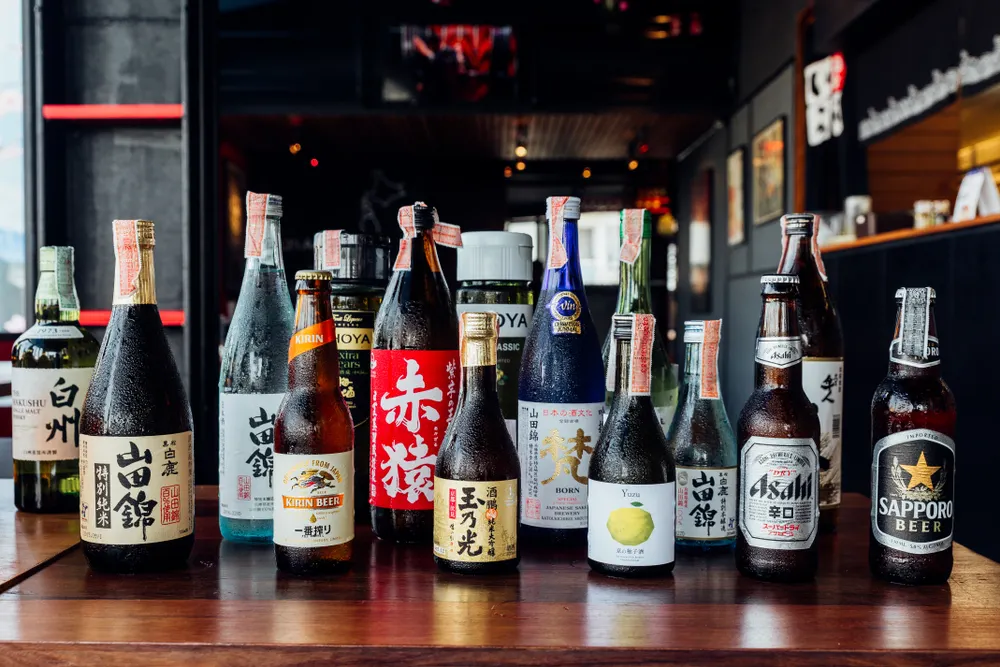In brief
- Japan's sake export volumes continue to grow.
- EY Japan wants to use a blockchain system to fight counterfeits outside of the country.
- The system will present customers with comprehensive data on every bottle.
EY Japan, an arm of UK-based global consulting firm EY (once Ernst & Young), has announced that it’s working on a blockchain system that will help sake producers fight counterfeit products.
According to a report by Nikkei Asian Review, the "SAKE Blockchain" is currently being developed by EY’s Japanese arm and will be launched across Asia, including Hong Kong and Singapore. Naturally, the spread of the coronavirus affected the initiative too, as the company said it will wait until “a stable business environment has been reestablished” before the full launch.

The blockchain will allow businesses to store a cornucopia of data about bottles of sake—all accessible by just scanning a QR-code. The information will include a list of ingredients, where the sake was brewed, details of quality control and of the distribution chain, including temperature. The blockchain records will even contain some tips on what food goes well with any given sake.
Per the report, the value of Japanese sake exports was up 5.3% in 2019 and reached 23.4 billion yen ($223 million), yet most sake producers are small or medium-sized enterprises. Therefore, they don’t really have the resources needed to track the products after shipping them out. The blockchain system could potentially provide breweries with a lot of useful and, most importantly, inexpensive data that can help with planning and marketing.
Yet, it’s not enough to know where your products are being sold—another big problem is to verify that those are really your products that are being sold under the brand. As the popularity of Japanese cuisine rises outside of the country, so does the number of fake products.
"Being able to tell the story of the production and origin [of sake] will help to differentiate it from fake products," said Hideaki Kajiura, a partner at EY Advisory & Consulting.
Reportedly, counterfeit sake can be found all around the world, including China and Europe. And sometimes it’s even more expensive than the real one.
“Counterfeit products are available for both high-end and cheap regular sake. If you look closely at the design on the bottles, they are elaborately made. [...] We cannot discover fake products without customers [making] inquiries. We recognize only a few cases a year, but [there are] many more. Most of the time, there is no way to take countermeasures," said a spokesperson of HAKUTSURU SAKE Brewing, Japan's largest sake exporter.
Even if sake is genuine, there’s still the problem of storage and distribution. Improper conditions can hurt the drink as people outside of Japan may not be too familiar with the drink.
"The best temperature to keep sake in good condition is said to be 5 degrees. But when sake is distributed in foreign countries, most carriers, restaurants and retailers do not know how to handle the product, such as managing its temperature, due to a lack of information," added EY’s Kajiura.
In the future, EY Japan plans to expand its blockchain system to the country’s fruit industry as well. Locally-branded strawberries, grapes and melon seeds are popular outside of Japan, yet, surprisingly enough, also suffer from the counterfeits market—the problem blockchain could help solve.
With a flood of false coronavirus remedies flooding its virtual shelves, Amazon could take a couple of notes on the subject.

